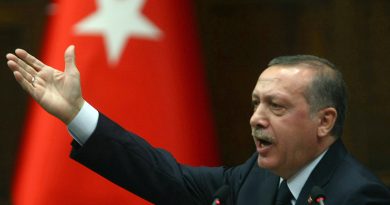FOCUS on International Response to Israel-Hamas War: Iran
Madeline Kruszczynski
Staff Writer
Iran, as an Islamic Republic, has been engaged in a protracted proxy conflict with Israel since 1985. Israel has consistently claimed that the Iranian government’s policies are characterized by anti-Semitic sentiments, and they back this claim by pointing to Iran’s financial support of various Arab extremist groups, notably including Hezbollah in Lebanon and the Palestinian Hamas group, according to Vox.
On October 7, 2023, the Iranian-backed Hamas organization launched an attack on an Israeli music festival, which marked the onset of a state of conflict between Hamas and Israel. Since the beginning of this conflict 1.4 million people have been displaced, reports The BBC. The Palestinian death toll has exceeded 11,000, and more than 1,400 people have been killed in Israel, The Associated Press reports.
According to The Council on Foreign Relations, Iran has been a supporter of Hamas through financial contributions and the provision of military hardware since the 1990s. This relationship strengthened in the face of the 2014 Gaza War against Israel. Through the duration of this conflict, Hamas political bureau chief Ismail Haniyeh publicly acknowledged Iran’s significant role in enabling the military acts against Israel, noting that Iran “did not hold back with money, weapons, and technical support.” This statement assumes that within the context of the current Hamas conflict, Iran maintains a parallel position as a proxy power to support the terrorist group.
Despite their historical support of Hamas, Iran has denied any involvement in the recent attacks in Israel. However, the country’s leader, Ayatollah Ali Khamenei, praised the actions of Hamas, saying “we kiss the hands of those who planned the attack on the Zionist regime,” as reported by Al Jazeera. Iran’s endorsement of the Palestinian cause is a sentiment that has been shared among the Arab nations since the 1979 Iranian revolution, which culminated in the formation of the Islamic Republic, according to Reuters.
Another way in which Iran has shown commitment to advancing the Muslim presence in the region is through the support of Lebanon’s Hezbollah group. Hezbollah is a Shia organization established in 1982 following the Lebanese war to prevent Western intervention and oppose Israeli expansion. As reported by Al Jazeera, Hezbollah is the only Arab military group to defeat Israel in battle, forcing Israel out of Southern Lebanon in 2000. In response to Hamas’ conflict with Israel, Hezbollah’s leader Hassan Nasrallah remarked, “Our hearts are with you. Our minds are with you. Our souls are with you. Our history and guns and our rockets are with you,” according to Vox.
In 1992, Hezbollah underwent a transformation by establishing a political entity known as the Loyalty to the Resistance Bloc, which has been the leading party in Lebanon since its formation. Through this bloc, the group has gained significant power. From a military perspective, The Center for Strategic and International Studies characterized Hezbollah as “the world’s most heavily armed non-state actor.”
This assertion bears significance in light of Hezbollah’s motto; “Death to Israel.” This motto is a sentiment publicly shared by the “axis of resistance,” a term used to describe a coalition of various Sunni and Shia Muslim groups and governments, including Lebanon, Gaza, and Iraq, with varying degrees of affiliation with Iran, reports NPR.
As Iran’s various alliances become more engaged in war, western powers fear Iran’s potential entrance. Director of the Strategy and Doctrine Program of The Rand Corporation Raphael Cohan says, “On the spectrum of ‘likely’ to ‘less likely,’ it’s probably one of the less likely scenarios [that Iran will formally enter the war]. But should Israel feel the need to directly strike Iran or vice versa, that has a broader implication for a regional war that could draw in not only Israel but a lot of the Arab states, the Gulf states, Saudi Arabia as well.”
This idea echoes the fears of most of the Western world: the likelihood of Iran entering is relatively low, but the potential consequences of such an intervention could entail a broader engagement of most of the Arab states, exacerbating the regional conflict.


